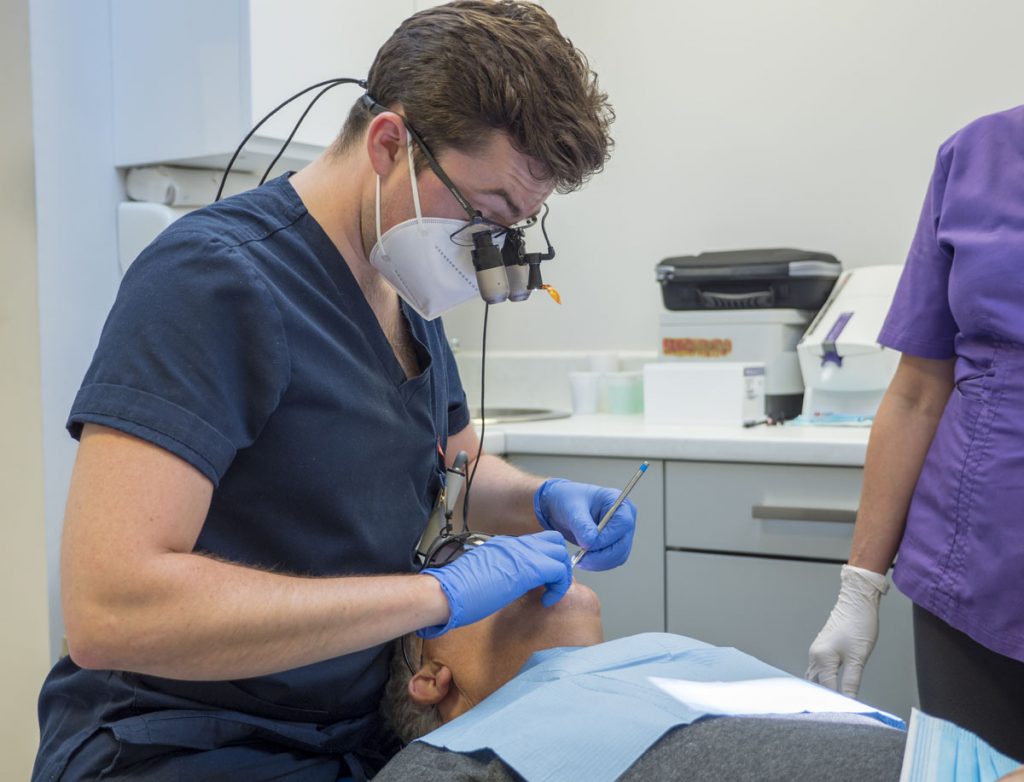What are the signs that you need to go to the dentist?
There are many potential reasons for tooth pain, and it’s important to visit the dentist to determine what might be bothering your mouth.
The most common issues are cavities (tooth decay), abscesses (a collection of pus), gingivitis (inflammation that can lead to gum disease and tooth loss) or oral cancer. Visit the dentist any time you see unusual changes such as redness, swelling, bleeding. Other signs include changing levels of discomfort in teeth, trauma, and trouble chewing food due to sensitivity around the area where the pain is felt.
It is important to go to your dentist for check-ups because it can help prevent these issues. Here are some signs that you should see your dentist and hygienist in order to take care of cavities, plaque buildup, and periodontal diseases before they get worse.
- Sensitivity to hot or cold temperatures in teeth or gums.
- Tooth decay, such as cavities and gum disease.
- Cracked teeth and broken crowns.
- Difficulty chewing food because of dental issues.
- An overall change in oral health.
Why should I go to the dentist more than once a year?
Bacteria in your mouth can cause gum disease, cavities and affect your oral health in other ways. It’s important to go to the dentist at least twice a year for regular cleanings and check-ups- even if you feel like everything is fine. While it might seem unnecessary, most dentists recommend that you come every six months for a cleaning and exam.
Dental professionals recommend check-ups twice a year. Twice yearly visits allow your dentist to identify and help treat small problems. These can include harmful plaque buildup, cavities, infected teeth, oral cancer cells precursors, dry mouth and dentures that no longer fit properly. Regular check-ups allow for early detection and treatment of these diseases before they become worse or more difficult to treat.
How often should kids go to the dentist?
Kids should go to the dentist at least every six months to check everything is okay and to get a fluoride treatment and fissure sealants if needed.
Fissure sealants are used to coat the chewing surfaces of children’s molars (the top four teeth in the back) at about age 6. It helps provide a protective barrier against dental decay.
A sealant is a lumpy plastic material that is put on top of permanent teeth to keep them from decaying and cavities from forming within the tooth cavity, caused by infection, physical trauma or external wear and tear – for example, an irregularly fitting tongue depressor which could damage the enamel surface or sticking food particles into holes between your crowns. Sealants can protect for 2–6 years before they must be replaced.
As preventive measures, parents should consider safeguarding their child’s teeth also with fluoride. Flossing is also a great idea to remove any plaque buildup that could lead to cavities on the chewing surfaces of the teeth. Dental health habits need to be instilled at an early age because it will help establish lifelong good oral care. It is recommended for kids six months or older to visit the dentist twice a year for a comprehensive exam and cleaning.
It’s important that parents set clear limits with their children about overexposure to sugary foods and drinks like soda, juice, candy, ices, etc., as these types of foods are known culprits when it comes to eating sugar regularly throughout the day.

What can happen if you don’t take care of your teeth or neglect them for too long?
Bad teeth can lead to infection, bone loss, gum disease, and tooth loss. If this is a new problem for you, there are many ways we’ll discuss how you can get your teeth back in shape.
As always, with dental hygiene, prevention is better than cure! By taking good care of your teeth, you will not only save time and money today but also avoid the unpleasantness of having to go through any dental treatment tomorrow. Brush after every meal (especially dessert) with fluoride toothpaste, rinse with water, use mouthwash after brushing if desired, and floss at least once a day.
Tips on how to maintain your oral health in between visits with your doctor
It’s important to take care of your teeth and gums when they’re healthy so that they stay like that. Brush at least twice a day with a soft-bristled toothbrush (no more than 6 minutes in total), avoid sugary foods that stick to your teeth, look after your tongue during brushing and floss once a day. Have regular dental check-ups and treatments as advised by the dentist, and don’t smoke.
Clean mouthwash is an effective way to clean any buildup of plaque or food particles from between teeth after eating anything other than pureed foods.
What is a dental emergency?
A dental emergency is a very common type of emergency in general, and it can include anything from an infection in the mouth to a fractured tooth. Seek immediate treatment if you experience any of these symptoms: swelling, redness or pus on the gums, difficulty opening your mouth due to tooth pain, severe jaw/toothache or waking up unable to fully open your mouth.
You need to go to the dentist. Twice a year, in fact! Why? Well, your oral health is important for so many reasons. Just two of those are tooth decay and gum disease, which can lead to more serious issues like heart problems or diabetes if left untreated. Plus, you may not know this but neglecting your teeth will cause them to recede over time due to bone loss from lack of use – that’s why people who have worn dentures their whole lives often don’t have much jawbone left on either side! Have you given any thought to how often you should visit the dentist? Let us know in the comments below!

